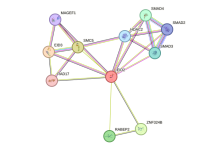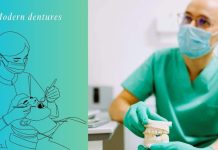6 Regular Health Checks for Elderly Men
As men age, it becomes increasingly important to prioritize health and well-being through regular health checks. By incorporating routine examinations into their lifestyle, older men can detect and address potential health issues early, ensuring a higher quality of life as they age. This article will explore six essential health checks for older men, covering cardiovascular health and prostate cancer screening.
1. Testosterone Check
Monitoring testosterone levels, commonly called Testosterone Replacement Therapy (TRT), is critical to maintaining optimal health as men age. Testosterone is pivotal in men’s health, including muscle mass, bone density, and libido. A routine testosterone check is essential to assess hormonal balance and address potential imbalances that may arise with age. Adequate testosterone levels contribute to overall well-being and positively impact energy levels, mood, and cognitive function.
Incorporating quality TRT into the spectrum of regular health checks empowers older men to manage their hormonal health proactively. This ensures a more fulfilling and vibrant quality of life as they navigate the challenges of aging. Prioritizing a testosterone check within routine health assessments is a crucial step toward comprehensive and personalized care for aging men.
2. Testicular Self-Examination
Testicular self-examination (TSE) is a crucial practice for men of all ages, but it becomes essential as they age. Testicular cancer is the most common cancer among young and middle-aged men, and the risk increases with age.
Regular self-exams can help detect abnormalities early on, improving the chances of successful treatment. To perform a testicular self-exam, it is advised to do so after a warm shower or bath when the scrotum is relaxed. Gently roll each testicle between the thumb and fingers, feeling for any lumps, swelling, or changes in size and shape. Any abnormalities should be promptly reported to a healthcare professional for further evaluation.
3. Heart Health
Cardiovascular health is a cornerstone of overall well-being, and as men age, the risk of heart-related issues tends to rise. Regular health checks to monitor heart health are crucial for preventing conditions like heart disease and stroke.
Common heart health assessments include blood pressure measurements, cholesterol checks, and monitoring for diabetes. Elevated blood pressure and cholesterol levels can contribute to heart problems, so early detection and management are vital. Lifestyle modifications like a heart-healthy diet, regular exercise, and stress management can significantly impact cardiovascular health and mitigate potential risks.
4. Skin Check
The skin is the body’s largest organ and undergoes various changes as people age. Skin cancer has become a concern, with prolonged sun exposure being a significant risk factor. Regular skin checks can help identify suspicious moles or lesions requiring further evaluation.
Older men should perform monthly skin self-examinations, looking for changes in the color, size, or shape of moles and any new growths. Additionally, scheduling annual skin exams with a dermatologist is advisable for a thorough assessment. Early skin cancer detection allows for more effective treatment, emphasizing the importance of incorporating skin health into routine health checks.
5. Prostate Cancer Screening
Prostate cancer is a significant health concern for older adults, with the risk increasing with age. Regular screening is essential for early detection and successful treatment.
The two primary screening methods for prostate cancer are the prostate-specific antigen (PSA) blood test and a digital rectal examination (DRE). The PSA blood test detects the amount of a protein that the prostate produces; high levels may be a sign of prostate problems, such as cancer. A DRE involves a physical examination of the prostate through the rectum to detect any abnormalities in size, shape, or texture.
It’s important to note that while these screenings are valuable tools, they are not without controversy, and screening decisions should be individualized based on discussions between the patient and their healthcare provider. The potential benefits and risks of screening, as well as personal preferences, should be considered.
6. Type 2 Diabetes
Type 2 diabetes is a common health concern among older men, and early detection is crucial for effective management and prevention of complications. Regular health checks that include monitoring blood sugar levels can help identify diabetes or prediabetes.
Fasting blood sugar and hemoglobin A1c tests are commonly used to diagnose and monitor diabetes. Lifestyle modifications, such as a balanced diet and regular exercise, are pivotal in managing and preventing type 2 diabetes. Additionally, maintaining a healthy weight and avoiding excessive alcohol consumption can contribute to diabetes prevention.
Final Words
As men age, prioritizing health becomes increasingly essential for maintaining an optimal quality of life. Incorporating these six regular health checks into a routine can help detect and address potential issues early, allowing for more effective management and treatment.
From testicular self-examinations to heart health monitoring, skin checks, and screenings for prostate cancer and type 2 diabetes, these proactive measures empower older men to take control of their health and well-being. By staying informed and aggressive, they can enjoy a fulfilling and healthy life well into their golden years.
Read More: Intermittent Claudication







